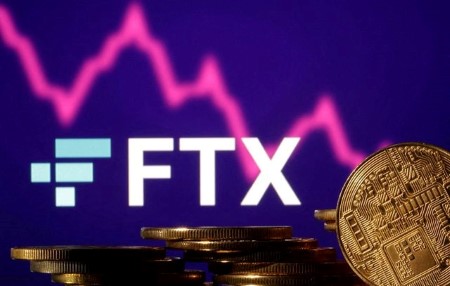




Policy Rate Updates: BSP outlook — cloudy with a chance of rate cut
 DOWNLOAD
DOWNLOAD

January Economic Update: Growth slows, prices rise
 DOWNLOAD
DOWNLOAD

Inflation Update: Up, up, and away?
 DOWNLOAD
DOWNLOAD


Bankrupt FTX’s new CEO outlines fund abuses, untrustworthy records

Nov 17 (Reuters) – The executive hired to steer FTX Group through bankruptcy offered his first findings of improper fund transfers and poor accounting at the collapsed crypto exchange on Thursday, describing it as a “complete failure” of controls.
John Ray, who was named FTX’s chief executive after the company filed for bankruptcy on Nov. 11, said in a court filing that the lapses in oversight, security, and corporate governance he identified were greater than in any other process he has managed in his 40 years as a bankruptcy specialist, including at Enron.
“Never in my career have I seen such a complete failure of corporate controls and such a complete absence of trustworthy financial information as occurred here,” Ray said in the filing, with the District of Delaware bankruptcy court.
FTX collapsed after its founder Sam Bankman-Fried used USD 10 billion in client funds to prop up his hedge fund Alameda Research, which had suffered losses when its bets on crypto ventures soured, Reuters has previously reported. That left FTX with insufficient funds to cover withdrawals when a plunge in the value of one of its currencies, FTT, triggered a bank run.
While Ray’s filing does not provide a full account of FTX’s demise, it details several lapses that contributed to the downfall.
An Alameda entity had lent USD 2.3 billion to an FTX entity, while Bankman-Fried and FTX co-founders and top executives Nishad Singh and Ryan Salame had collectively borrowed USD 1.6 billion from Alameda, according to the filing. More such “related party” transactions are listed in the filing, though details are not offered.
Bankman-Fried, Singh and Salame did not respond to requests for comment on Thursday.
FTX funds were also used to buy homes and other personal items for employees and advisors, Ray wrote. Some of this money transfers were not documented as company loans, while the homes were registered under the names of the employees, Ray added.
Proper checks and balances were absent, according to the filing. Employees submitted payment requests through an on-line “chat” platform and supervisors approved them with personalized emojis, the filing states.
Bankman-Fried often communicated through applications that were set to auto-delete after a short period of time and encouraged employees to do the same, Ray wrote.
Most of the financial statements Ray reviewed were not audited. He said he harboured “substantial concerns” for statements he found that were audited because they relied on Prager Metis, an accounting firm operating in the virtual world, in metaverse platform Decentraland.
Ray also wrote that Bankman-Fried had made “erratic and misleading public statements,” citing an exchange with a reporter on Twitter.
Vox on Wednesday published an interview with Bankman-Fried in which he said he regretted his decision to file for bankruptcy protection and criticized regulators.
He later attempted to backtrack, saying he was “venting” and thought his exchange of messages with the reporter that made the basis of the interview were private.
FTX had 1 million users in the United States and many more across the world, according to the filing. It’s unclear how many will be able to recover their funds through the bankruptcy.
‘MISPLACED’
Singapore state investor Temasek Holdings, an FTX investor, also criticized Bankman-Fried on Thursday as it announced it would write down the value of its USD 275 million stake.
“It is apparent from this investment that perhaps our belief in the actions, judgment and leadership of Sam Bankman-Fried … would appear to have been misplaced,” Temasek said.
Other investors including Softbank Group’s Corp’s vision fund and Sequoia Capital have also written down their investments in the exchange to zero, as ripples from FTX’s bankruptcy continue to be felt around the world.
Major crypto player Genesis Global Capital suspended customer redemptions in its lending business on Wednesday, in response “to the extreme market dislocation and loss of industry confidence caused by the FTX implosion”.
Financial and markets authorities around the world scrambled on Thursday to draft responses to FTX’s failure, with Singapore’s finance minister saying that its collapse has raised “very serious allegations that amount to potential fraud”.
Indonesia ordered crypto exchanges to stop trading FTX tokens. Brazilian crypto advocates cited FTX’s implosion in a push to persuade lawmakers to give final approval on a bill to boost oversight of the cryptocurrency industry.
(Reporting by Niket Nishant in Bengaluru and John McCrank in New York, additional reporting by Alun John in London and Hannah Lang in Washington; Editing by Shinjini Ganguli, Anil D’Silva and Alexander Smith and Anna Driver)
This article originally appeared on reuters.com





 By Reuters
By Reuters